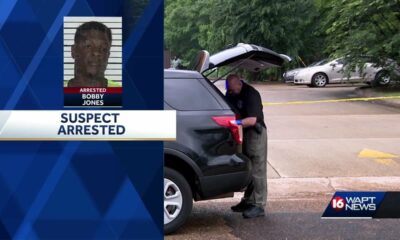Kaiser Health News
In Idaho, Taking a Minor Out of State for an Abortion Is Now a Crime: ‘Abortion Trafficking’
by Sarah Varney, KFF Health News
Mon, 08 May 2023 09:00:00 +0000
MOSCOW, Idaho — Mackenzie Davidson grew up in a Mormon household and sheepishly admits she knew little about pregnancy.
“This is embarrassing,” she said, sitting outside a café along a street thronged with students in this college town. “But I didn't know that you had to have sex to have kids until I was 13 or 14.”
She's a writer for the University of Idaho student newspaper, The Argonaut, and was asked recently to report on a new law. It's now a crime to help a teen under 18 leave the state for an abortion or obtain medication abortion pills without parental consent — including when the girl has been sexually assaulted or raped by a family member or parent. Gov. Brad Little, a Republican, in signing the bill, wrote that the law does not “limit an adult woman from obtaining an abortion in another state.”
Davidson, 19, reached out to interview state Rep. Barbara Ehardt, a Republican co-sponsor of the bill, who touted her “Christian-based” attitude during her campaign.
“She kept saying that it was about parental rights,” Davidson said. But “the thing that really caught my attention was the fact that they were calling it ‘abortion trafficking.'”
The law creates a crime of “abortion trafficking” and criminalizes the “recruiting, harboring, or transporting” of minors without parental consent. In a floor speech before the Idaho Legislature voted on the bill, Ehardt said, “We are only looking to protect our children.”
Idaho's “teen travel ban,” as it's known here, took effect May 5, nearly 11 months after the U.S. Supreme Court eliminated the federal constitutional right to abortion. Any adult, including an aunt, grandparent, or sibling, convicted of violating the criminal statute faces up to five years in prison. Under a separate state law, family members of the pregnant minor and the sexual partner involved can sue any health care provider who helped terminate the pregnancy for financial damages.
“If you're successful, you're guaranteed $20,000 minimum, and that's per claim per relative,” said Kelly O'Neill, an Idaho litigation attorney for Legal Voice, a progressive nonprofit.
“Idaho has a lot of big families,” she added.
Under the new law, even when a parent gives consent, the person accompanying the minor would need to provide an “affirmative defense” proving they were acting with the permission of a parent of the teen.
“You could still be charged, arrested, perhaps even have to go all the way to a jury trial and prove in a courtroom that your sister gave you permission,” O'Neill said.
Legal experts say Idaho's travel ban, based on a model bill written by National Right to Life, one of the country's largest anti-abortion groups, is designed to sidestep implied constitutional protections for interstate travel. The law targets travel assistance within and up to the state's border, effectively criminalizing medical care legally obtained in neighboring states.
“This is one of the next frontiers of abortion litigation,” said David S. Cohen, a constitutional law professor at Drexel University. “They're clearly pushing this kind of law with other states.”
In response to potential legal threats, on April 27, Washington Gov. Jay Inslee, a Democrat, signed a series of bills barring law enforcement from cooperating with other states' abortion investigations. Those laws shield medical providers from lawsuits and protect their medical licenses from being revoked.
But in communities like Spokane, Washington, just 20 miles from the Idaho border, there is a sense of unease.
“We have staff who live in Idaho who commute,” said Karl Eastlund, CEO of Planned Parenthood of Greater Washington and North Idaho. “It's one big economic region, when you think of the border communities here.”
When asked if he was concerned that medical staff members living in Idaho could be criminally charged for the abortion care they provide every day, he said, “We have told our providers we will handle all of your legal fees and we'll provide lawyers to help you sort out anything that happens.”
He added, “It's something we think about a lot.”
After Sunday morning Mass at St. Augustine's Catholic Center in Moscow, Ryan Alexander tended to his 17-month-old daughter, Penelope, as she toddled about the church courtyard. Alexander, 25, a married law student at the university here, said ending any pregnancy violates his Catholic beliefs.
He has read the text of the bill, he said, “and the way it's written is actually incredibly prudent.” No adult, he said, can act in place of a parent.
“That's just kidnapping, by any means, if you take a girl away from her parents when she's a minor and her parents have authority over her,” he said.
Alexander said he understands that some teenage girls are sexually abused at home or have dysfunctional relationships with their parents. Still, he supports the law.
“When we look at situations like that, my heart goes out to them. What can I do but pray from a distance and think, how can that be better?” he said. But “two wrongs do not make a right.”
Idaho patients, including teenagers, have long crossed into Washington state to legally end their pregnancies. Eastlund said fewer than 5% of the clinics' patients who come for abortion care are minors.
Most of those patients, he said, do involve their parents in the process, even though parental consent is not mandatory in Washington. Those who don't, Eastlund said, have good reason not to. Some are in dangerous, abusive situations in which disclosing a pregnancy could put them at risk of further harm.
“We're talking about sexual abuse and incest,” said Eastlund, sitting upstairs at the clinic in Spokane. “It's not stuff people want to talk about, but, unfortunately, it's more common than people think.”
On the shores of Lake Pend Oreille, in Sandpoint, Idaho, Jen Jackson Quintano said she wants her daughter, Sylvia, 8, to have trusted adults around whom she can turn to when she's a teenager.
“I think back to my teenage years when I was in high school, I had a boyfriend that I loved, and I was sexually active,” she said. At the time she thought, “If I get pregnant, I would rather just die, just end it, than have to figure this out and tell my parents.”
Quintano said that while growing up in the Roman Catholic Church, she was taught that sex, contraception, and abortion were shameful, and she is raising her daughter under a different set of beliefs.
“Shame as a woman — it's a powerful form of control, and I don't want her to walk that path of shame,” Quintano said. “I want her to feel comfortable in her body.”
Idaho's teen abortion travel ban and the financial rewards for reporting citizens who obtain abortions are already dividing the tightknit fabric of Sandpoint's community, she said.
“We don't know who to trust,” Quintano said. “We don't know who we can talk to.”
By: Sarah Varney, KFF Health News
Title: In Idaho, Taking a Minor Out of State for an Abortion Is Now a Crime: ‘Abortion Trafficking'
Sourced From: kffhealthnews.org/news/article/idaho-abortion-travel-ban/
Published Date: Mon, 08 May 2023 09:00:00 +0000
Did you miss our previous article…
https://www.biloxinewsevents.com/walensky-to-leave-cdc-in-june-as-covid-emergency-winds-down/
Kaiser Health News
The Lure of Specialty Medicine Pulls Nurse Practitioners From Primary Care
Michelle Andrews
Fri, 17 May 2024 09:00:00 +0000
For many patients, seeing a nurse practitioner has become a routine part of primary care, in which these “NPs” often perform the same tasks that patients have relied on doctors for.
But NPs in specialty care? That's not routine, at least not yet. Increasingly, though, nurse practitioners and physician assistants are joining cardiology, dermatology, and other specialty practices, broadening their skills and increasing their income.
This development worries some people who track the health workforce, because current trends suggest primary care, which has counted on nurse practitioners to backstop physician shortages, soon might not be able to rely on them to the same extent.
“They're succumbing to the same challenges that we have with physicians,” said Atul Grover, executive director of the Research and Action Institute at the Association of American Medical Colleges. The rates NPs can command in a specialty practice “are quite a bit higher” than practice salaries in primary care, he said.
When nurse practitioner programs began to proliferate in the 1970s, “at first it looked great, producing all these nurse practitioners that go to work with primary care physicians,” said Yalda Jabbarpour, director of the American Academy of Family Physicians' Robert Graham Center for Policy Studies. “But now only 30% are going into primary care.”
Jabbarpour was referring to the 2024 primary care scorecard by the Milbank Memorial Fund, which found that from 2016 to 2021 the proportion of nurse practitioners who worked in primary care practices hovered between 32% and 34%, even though their numbers grew rapidly. The proportion of physician assistants, also known as physician associates, in primary care ranged from 27% to 30%, the study found.
Both nurse practitioners and physician assistants are advanced practice clinicians who, in addition to graduate degrees, must complete distinct education, training, and certification steps. NPs can practice without a doctor's supervision in more than two dozen states, while PAs have similar independence in only a handful of states.
About 88% of nurse practitioners are certified in an area of primary care, according to the American Association of Nurse Practitioners. But it is difficult to track exactly how many work in primary care or in specialty practices. Unlike physicians, they're generally not required to be endorsed by a national standard-setting body to practice in specialties like oncology or cardiology, for example. The AANP declined to answer questions about its annual workforce survey or the extent to which primary care NPs are moving toward specialties.
Though data tracking the change is sparse, specialty practices are adding these advanced practice clinicians at almost the same rate as primary care practices, according to frequently cited research published in 2018.
The clearest evidence of the shift: From 2008 to 2016, there was a 22% increase in the number of specialty practices that employed nurse practitioners and physician assistants, according to that study. The increase in the number of primary care practices that employed these professionals was 24%.
Once more, the most recent projections by the Association of American Medical Colleges predict a dearth of at least 20,200 primary care physicians by 2036. There will also be a shortfall of non-primary care specialists, including a deficiency of at least 10,100 surgical physicians and up to 25,000 physicians in other specialties.
When it comes to the actual work performed, the lines between primary and specialty care are often blurred, said Candice Chen, associate professor of health policy and management at George Washington University.
“You might be a nurse practitioner working in a gastroenterology clinic or cardiology clinic, but the scope of what you do is starting to overlap with primary care,” she said.
Nurse practitioners' salaries vary widely by location, type of facility, and experience. Still, according to data from health care recruiter AMN Healthcare Physician Solutions, formerly known as Merritt Hawkins, the total annual average starting compensation, including signing bonus, for nurse practitioners and physician assistants in specialty practice was $172,544 in the year that ended March 31, slightly higher than the $166,544 for those in primary care.
According to forecasts from the federal Bureau of Labor Statistics, nurse practitioner jobs will increase faster than jobs in almost any other occupation in the decade leading up to 2032, growing by 123,600 jobs or 45%. (Wind turbine service technician is the only other occupation projected to grow as fast.) The growth rate for physician assistants is also much faster than average, at 27%. There are more than twice as many nurse practitioners as physician assistants, however: 323,900 versus 148,000, in 2022.
To Grover, of the AAMC, numbers like this signal that there will probably be enough NPs, PAs, and physicians to meet primary care needs. At the same time, “expect more NPs and PAs to also flow out into other specialties,” he said.
When Pamela Ograbisz started working as a registered nurse 27 years ago, she worked in a cardiothoracic intensive care unit. After she became a family nurse practitioner a few years later, she found a job with a similar specialty practice, which trained her to take on a bigger role, first running their outpatient clinic, then working on the floor, and later in the intensive care unit.
If nurse practitioners want to specialize, often “the doctors mentor them just like they would with a physician residency,” said Ograbisz, now vice president of clinical operations at temporary placement recruiter LocumTenens.com.
If physician assistants want to specialize, they also can do so through mentoring, or they can receive “certificates of added qualifications” in 10 specialties to demonstrate their expertise. Most employers don't “encourage or require” these certificates, however, said Jennifer Orozco, chief medical officer at the American Academy of Physician Associates.
There are a number of training programs for family nurse practitioners who want to develop skills in other areas.
Raina Hoebelheinrich, 40, a family nurse practitioner at a regional medical center in Yankton, South Dakota, recently enrolled in a three-semester post-master's endocrinology training program at Mount Marty University. She lives on a farm in nearby northeastern Nebraska with her husband and five sons.
Hoebelheinrich's new skills could be helpful in her current hospital job, in which she sees a lot of patients with acute diabetes, or in a clinic setting like the one in Sioux Falls, South Dakota, where she is doing her clinical endocrinology training.
Lack of access to endocrinology care in rural areas is a real problem, and many people may travel hundreds of miles to see a specialist.
“There aren't a lot of options,” she said.
——————————
By: Michelle Andrews
Title: The Lure of Specialty Medicine Pulls Nurse Practitioners From Primary Care
Sourced From: kffhealthnews.org/news/article/nurse-practitioners-trend-primary-care-specialties/
Published Date: Fri, 17 May 2024 09:00:00 +0000
Did you miss our previous article…
https://www.biloxinewsevents.com/clean-needles-save-lives-in-some-states-they-might-not-be-legal/
Kaiser Health News
Clean Needles Save Lives. In Some States, They Might Not Be Legal.
Ed Mahon, Spotlight PA and Sarah Boden, WESA
Fri, 17 May 2024 09:00:00 +0000
Kim Botteicher hardly thinks of herself as a criminal.
On the main floor of a former Catholic church in Bolivar, Pennsylvania, Botteicher runs a flower shop and cafe.
In the former church's basement, she also operates a nonprofit organization focused on helping people caught up in the drug epidemic get back on their feet.
The nonprofit, FAVOR ~ Western PA, sits in a rural pocket of the Allegheny Mountains east of Pittsburgh. Her organization's home county of Westmoreland has seen roughly 100 or more drug overdose deaths each year for the past several years, the majority involving fentanyl.
Thousands more residents in the region have been touched by the scourge of addiction, which is where Botteicher comes in.
She helps people find housing, jobs, and health care, and works with families by running support groups and explaining that substance use disorder is a disease, not a moral failing.
But she has also talked publicly about how she has made sterile syringes available to people who use drugs.
“When that person comes in the door,” she said, “if they are covered with abscesses because they have been using needles that are dirty, or they've been sharing needles — maybe they've got hep C — we see that as, ‘OK, this is our first step.'”
Studies have identified public health benefits associated with syringe exchange services. The Centers for Disease Control and Prevention says these programs reduce HIV and hepatitis C infections, and that new users of the programs are more likely to enter drug treatment and more likely to stop using drugs than nonparticipants.
This harm-reduction strategy is supported by leading health groups, such as the American Medical Association, the World Health Organization, and the International AIDS Society.
But providing clean syringes could put Botteicher in legal danger. Under Pennsylvania law, it's a misdemeanor to distribute drug paraphernalia. The state's definition includes hypodermic syringes, needles, and other objects used for injecting banned drugs. Pennsylvania is one of 12 states that do not implicitly or explicitly authorize syringe services programs through statute or regulation, according to a 2023 analysis. A few of those states, but not Pennsylvania, either don't have a state drug paraphernalia law or don't include syringes in it.
Those working on the front lines of the opioid epidemic, like Botteicher, say a reexamination of Pennsylvania's law is long overdue.
There's an urgency to the issue as well: Billions of dollars have begun flowing into Pennsylvania and other states from legal settlements with companies over their role in the opioid epidemic, and syringe services are among the eligible interventions that could be supported by that money.
The opioid settlements reached between drug companies and distributors and a coalition of state attorneys general included a list of recommendations for spending the money. Expanding syringe services is listed as one of the core strategies.
But in Pennsylvania, where 5,158 people died from a drug overdose in 2022, the state's drug paraphernalia law stands in the way.
Concerns over Botteicher's work with syringe services recently led Westmoreland County officials to cancel an allocation of $150,000 in opioid settlement funds they had previously approved for her organization. County Commissioner Douglas Chew defended the decision by saying the county “is very risk averse.”
Botteicher said her organization had planned to use the money to hire additional recovery specialists, not on syringes. Supporters of syringe services point to the cancellation of funding as evidence of the need to change state law, especially given the recommendations of settlement documents.
“It's just a huge inconsistency,” said Zoe Soslow, who leads overdose prevention work in Pennsylvania for the public health organization Vital Strategies. “It's causing a lot of confusion.”
Though sterile syringes can be purchased from pharmacies without a prescription, handing out free ones to make drug use safer is generally considered illegal — or at least in a legal gray area — in most of the state. In Pennsylvania's two largest cities, Philadelphia and Pittsburgh, officials have used local health powers to provide legal protection to people who operate syringe services programs.
Even so, in Philadelphia, Mayor Cherelle Parker, who took office in January, has made it clear she opposes using opioid settlement money, or any city funds, to pay for the distribution of clean needles, The Philadelphia Inquirer has reported. Parker's position signals a major shift in that city's approach to the opioid epidemic.
On the other side of the state, opioid settlement funds have had a big effect for Prevention Point Pittsburgh, a harm reduction organization. Allegheny County reported spending or committing $325,000 in settlement money as of the end of last year to support the organization's work with sterile syringes and other supplies for safer drug use.
“It was absolutely incredible to not have to fundraise every single dollar for the supplies that go out,” said Prevention Point's executive director, Aaron Arnold. “It takes a lot of energy. It pulls away from actual delivery of services when you're constantly having to find out, ‘Do we have enough money to even purchase the supplies that we want to distribute?'”
In parts of Pennsylvania that lack these legal protections, people sometimes operate underground syringe programs.
The Pennsylvania law banning drug paraphernalia was never intended to apply to syringe services, according to Scott Burris, director of the Center for Public Health Law Research at Temple University. But there have not been court cases in Pennsylvania to clarify the issue, and the failure of the legislature to act creates a chilling effect, he said.
Carla Sofronski, executive director of the Pennsylvania Harm Reduction Network, said she was not aware of anyone having faced criminal charges for operating syringe services in the state, but she noted the threat hangs over people who do and that they are taking a “great risk.”
In 2016, the CDC flagged three Pennsylvania counties — Cambria, Crawford, and Luzerne — among 220 counties nationwide in an assessment of communities potentially vulnerable to the rapid spread of HIV and to new or continuing high rates of hepatitis C infections among people who inject drugs.
Kate Favata, a resident of Luzerne County, said she started using heroin in her late teens and wouldn't be alive today if it weren't for the support and community she found at a syringe services program in Philadelphia.
“It kind of just made me feel like I was in a safe space. And I don't really know if there was like a come-to-God moment or come-to-Jesus moment,” she said. “I just wanted better.”
Favata is now in long-term recovery and works for a medication-assisted treatment program.
At clinics in Cambria and Somerset Counties, Highlands Health provides free or low-cost medical care. Despite the legal risk, the organization has operated a syringe program for several years, while also testing patients for infectious diseases, distributing overdose reversal medication, and offering recovery options.
Rosalie Danchanko, Highlands Health's executive director, said she hopes opioid settlement money can eventually support her organization.
“Why shouldn't that wealth be spread around for all organizations that are working with people affected by the opioid problem?” she asked.
In February, legislation to legalize syringe services in Pennsylvania was approved by a committee and has moved forward. The administration of Gov. Josh Shapiro, a Democrat, supports the legislation. But it faces an uncertain future in the full legislature, in which Democrats have a narrow majority in the House and Republicans control the Senate.
One of the bill's lead sponsors, state Rep. Jim Struzzi, hasn't always supported syringe services. But the Republican from western Pennsylvania said that since his brother died from a drug overdose in 2014, he has come to better understand the nature of addiction.
In the committee vote, nearly all of Struzzi's Republican colleagues opposed the bill. State Rep. Paul Schemel said authorizing the “very instrumentality of abuse” crossed a line for him and “would be enabling an evil.”
After the vote, Struzzi said he wanted to build more bipartisan support. He noted that some of his own skepticism about the programs eased only after he visited Prevention Point Pittsburgh and saw how workers do more than just hand out syringes. These types of programs connect people to resources — overdose reversal medication, wound care, substance use treatment — that can save lives and lead to recovery.
“A lot of these people are … desperate. They're alone. They're afraid. And these programs bring them into someone who cares,” Struzzi said. “And that, to me, is a step in the right direction.”
At her nonprofit in western Pennsylvania, Botteicher is hoping lawmakers take action.
“If it's something that's going to help someone, then why is it illegal?” she said. “It just doesn't make any sense to me.”
This story was co-reported by WESA Public Radio and Spotlight PA, an independent, nonpartisan, and nonprofit newsroom producing investigative and public-service journalism that holds power to account and drives positive change in Pennsylvania.
KFF Health News is a national newsroom that produces in-depth journalism about health issues and is one of the core operating programs at KFF—an independent source of health policy research, polling, and journalism. Learn more about KFF.
USE OUR CONTENT
This story can be republished for free (details).
——————————
By: Ed Mahon, Spotlight PA and Sarah Boden, WESA
Title: Clean Needles Save Lives. In Some States, They Might Not Be Legal.
Sourced From: kffhealthnews.org/news/article/clean-needles-syringe-services-programs-legal-gray-area-risk-pennsylvania/
Published Date: Fri, 17 May 2024 09:00:00 +0000
Kaiser Health News
Watch: John Oliver Dishes on KFF Health News’ Opioid Settlements Series
Fri, 17 May 2024 09:00:00 +0000
Opioid manufacturers, distributors, and retailers are paying tens of billions of dollars in restitution to settle lawsuits related to their role in the nation's overdose epidemic. A recent broadcast of “Last Week Tonight With John Oliver” examined how that money is being spent by state and local governments across the United States.
The segment featured reporting from the KFF Health News series “Payback: Tracking the Opioid Settlement Cash.” You can learn more about the issue and read our collection of articles by Aneri Pattani here.
——————————
Title: Watch: John Oliver Dishes on KFF Health News' Opioid Settlements Series
Sourced From: kffhealthnews.org/news/article/watch-john-oliver-kff-health-news-payback-opioid-settlements-series/
Published Date: Fri, 17 May 2024 09:00:00 +0000
-
SuperTalk FM5 days ago
Martin Lawrence making 3 stops in Mississippi on comedy tour
-
Our Mississippi Home4 days ago
Beat the Heat with Mississippi’s Best Waterparks
-
SuperTalk FM1 day ago
State auditor cracking down on Mississippians receiving unemployment benefits
-
Our Mississippi Home5 days ago
Charlie’s U-Pik: Opening Soon for the Summer Season
-
Kaiser Health News4 days ago
Medicaid ‘Unwinding’ Decried as Biased Against Disabled People
-
Mississippi News Video3 days ago
Jackson has a gang problem
-
228Sports4 days ago
George County Pours Runs In 6A South State Title Victory At PRC
-
Mississippi Today2 days ago
On this day in 1950








































